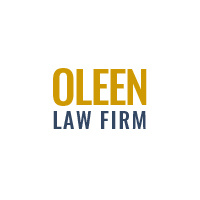 Clay Center Misdemeanor Lawyers, Kansas
Clay Center Misdemeanor Lawyers, Kansas
Not enough matches for Clay Center Misdemeanor lawyer.
Below are all Clay Center Criminal lawyers.
Sponsored Lawyers
1-5 of 5 matches
Criminal
Lawyer John W. Thurston is an experienced Northeast Kansas DUI defense lawyer who has successfully completed extensive training that puts him in a unique position to defend people in Kansas against DUI charges. John’s history as both a defense lawyer and previous prosecutor, plus his commitment to education and ongoing improvement makes a significant impact on his ability to effectively represent his clients. Training and accreditation includes: Forensic Lawyer Scientist designation by the American Chemical Society (Chemistry and the Law Division). The requirements for this award include 160 hours of coursework including hands-on lab work, after which one must pass an extremely rigorous written exam. Standardized Field Sobriety Test training developed by NHTSA. This is the DUI investigation training undergone by all Kansas law enforcement officers. John has completed this course multiple times, to include completing the course with actual Kansas Highway Patrol instructors. Standardized Field Sobriety Test Instructor training. This is the course that police officers must complete if they want to become an academy-level instructor in DUI investigations. Drug Recognition Expert training, also developed by NHTSA. This is the training undergone by officers needed to investigate whether or not a citizen is driving under the influence of drugs, legal or otherwise. Few police officers actually receive this training. Very few lawyer do so. Mastering Scientific Evidence in DUI/DWI Cases - Certificate (awarded multiple times). DNA for Lawyers I - hands on DNA lab training at Boise State University. Several of the courses and certification programs John has completed are rare for a Kansas lawyer to have taken. When you work with him, you work with someone committed to ongoing education in a way that can make a big difference in how a case is handled and received. John’s early experience includes awards won during competitive mock trial teams while at law school, and these efforts have paid off throughout his career thus far with an overwhelmingly positive track record. John believes his focus on being a DUI and criminal defense lawyer puts his clients at an advantage over the alternative of working with a generalist lawyer who divides his or her time between divorces, personal injury, and other law areas as well as DUI and criminal cases. His continued focus on DUI and criminal defense and ongoing efforts to deepen his skills have made John a sought after lecturer for other DUI and criminal defense lawyers and cases. His teaching and consulting skills are frequently requested in several states as well as for local print media, and he has been asked to consult for out-of-state cases from clients ranging from those charged with multiple priors and first-time offenses.
(more)Divorce & Family Law, Criminal, Accident & Injury, Estate, Real Estate
If you need an attorney that will always protect your best interests, call the Oleen Law Firm today. The Oleen Law Firm is committed to defending our clients and ensuring their fundamental rights are always protected. Whether you need a criminal lawyer, a divorce attorney, an estate attorney, or a personal injury lawyer, we offer aggressive and experienced representation.
(more)Criminal, DUI-DWI
Thomas Addair graduated from Manhattan High School and Kansas State University. He attended law school at the University of Kansas. This is where Tom first became interested in criminal law. He represented the criminally accused through one of the law school's clinics. This experience showed him early on that he wanted to be a criminal defense lawyer. On the Way to a Passionate Career in Law After graduation, Tom became the City Prosecutor for the city of Manhattan. This position gave him a great deal of experience in criminal law, experience that Tom now puts to use aggressively defending his clients. Not only did he gain a vast amount of trial experience, but he also received training in DUI investigations and other areas of criminal law available only to prosecutors. During his time as the City Prosecutor, the city of Manhattan began prosecuting marijuana charges. Tom developed the policies and procedures of drug prosecution still used by the city today.
(more)






